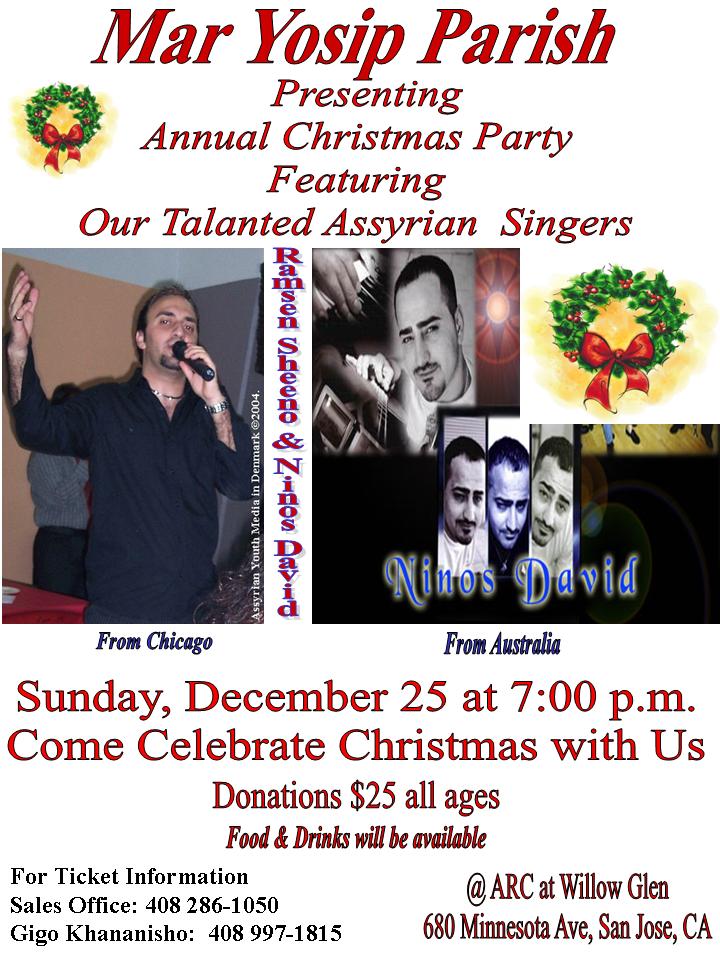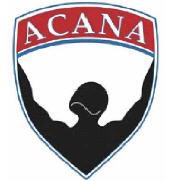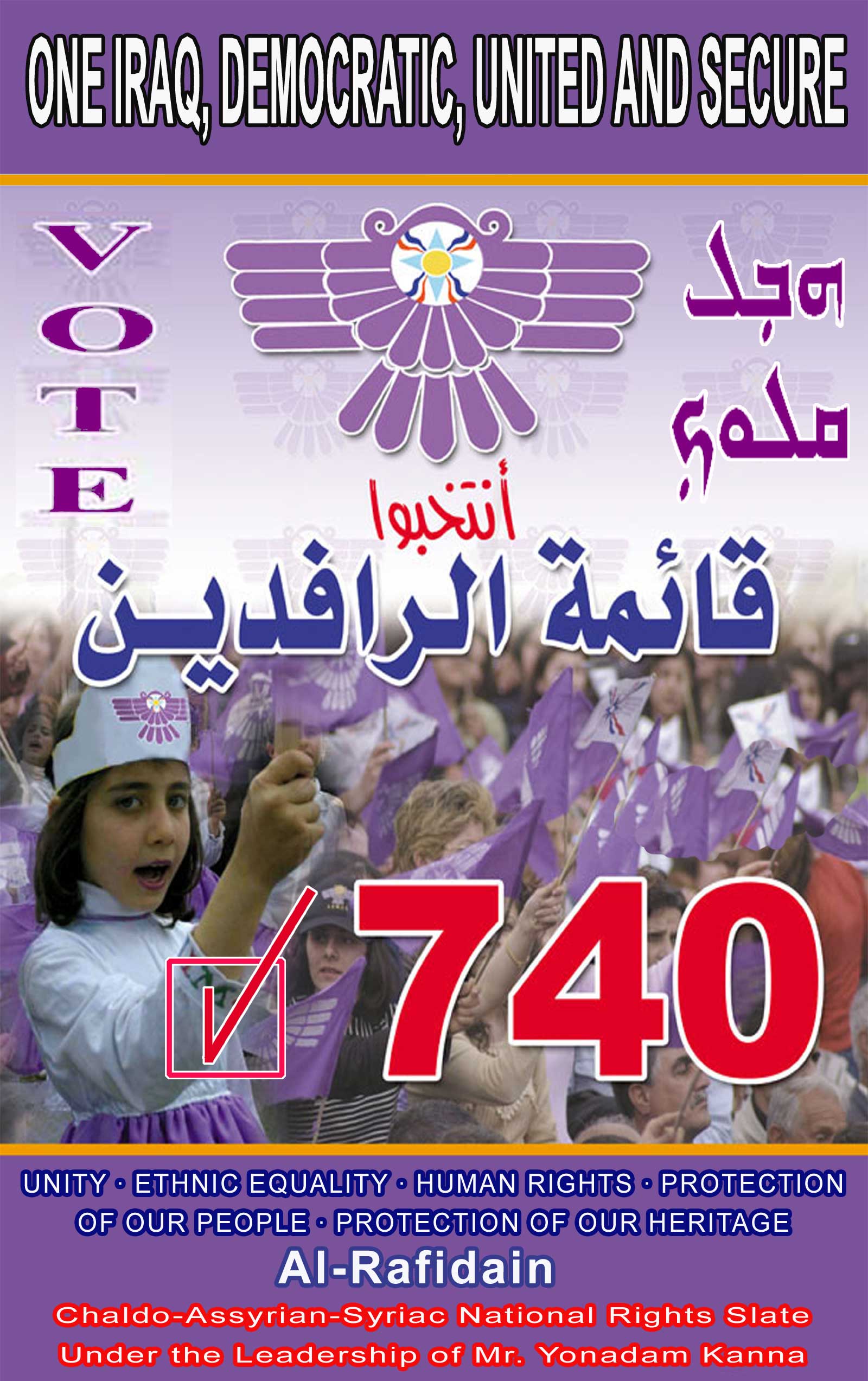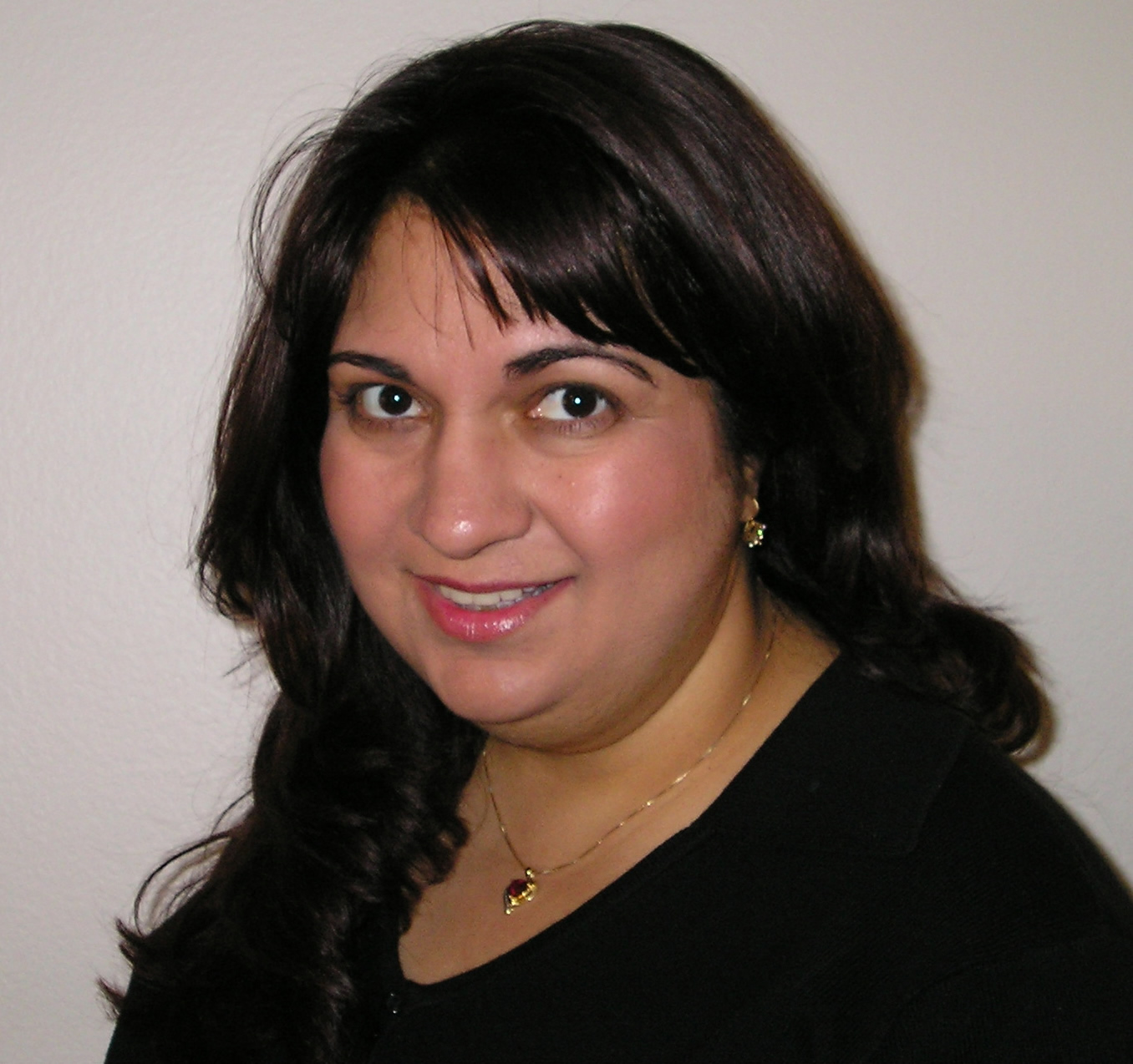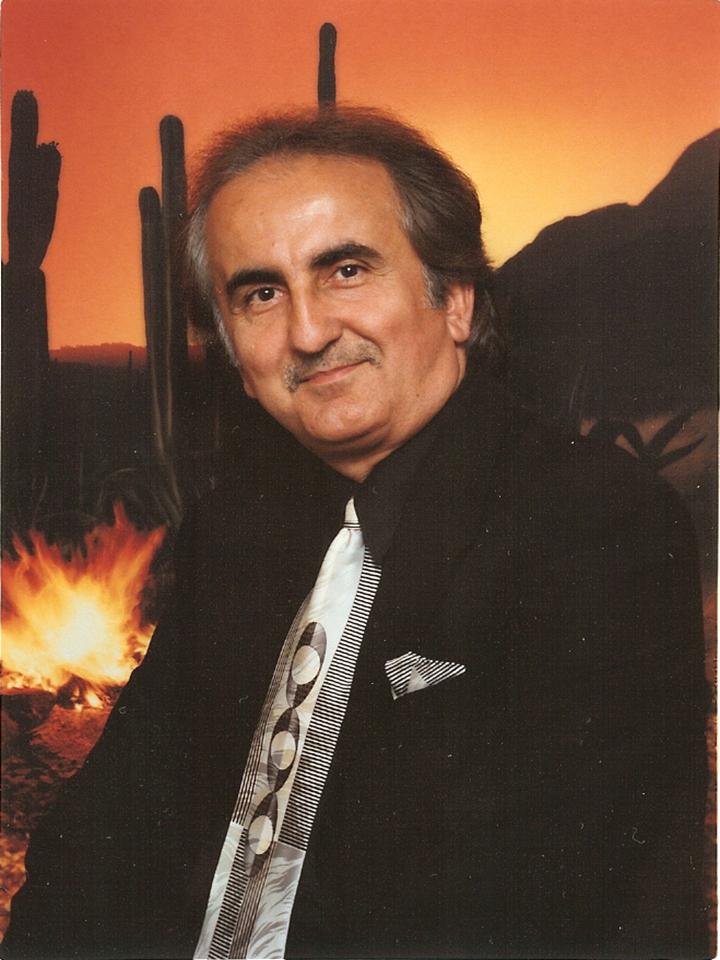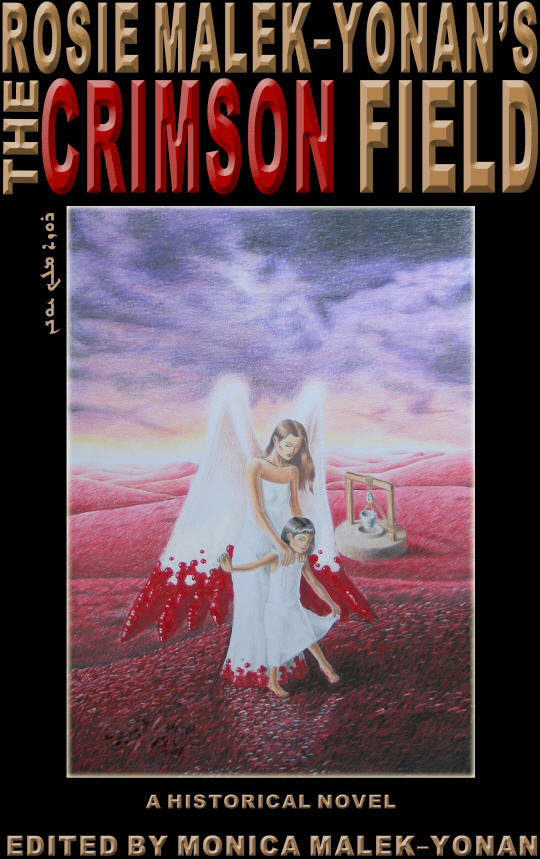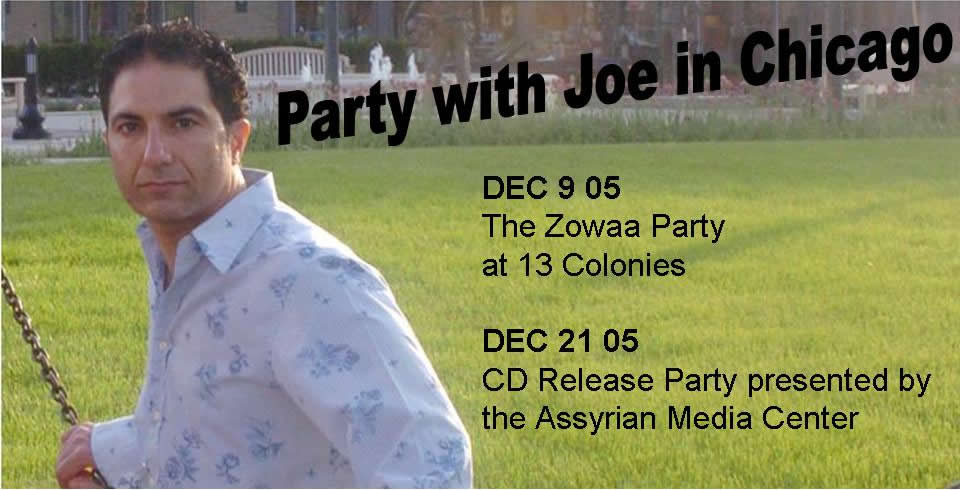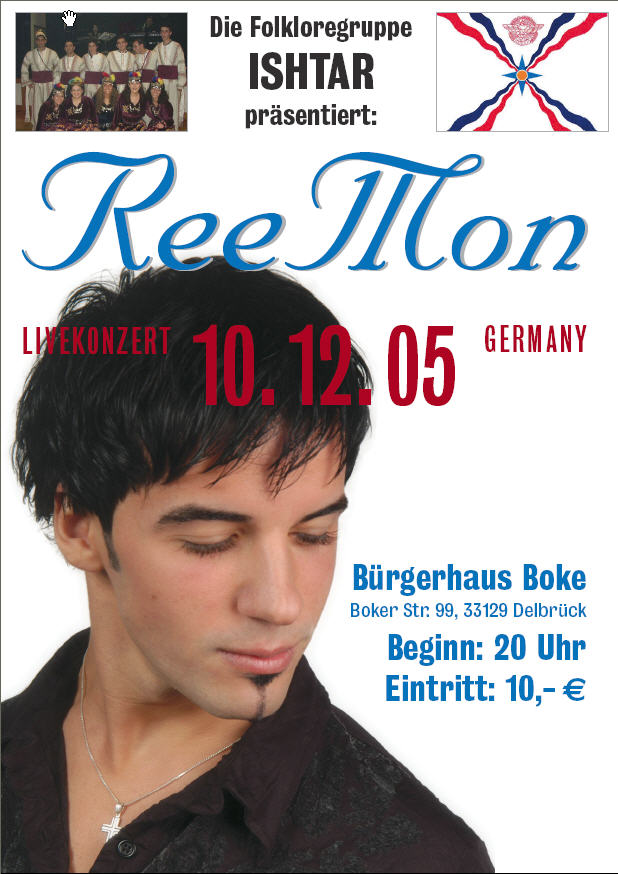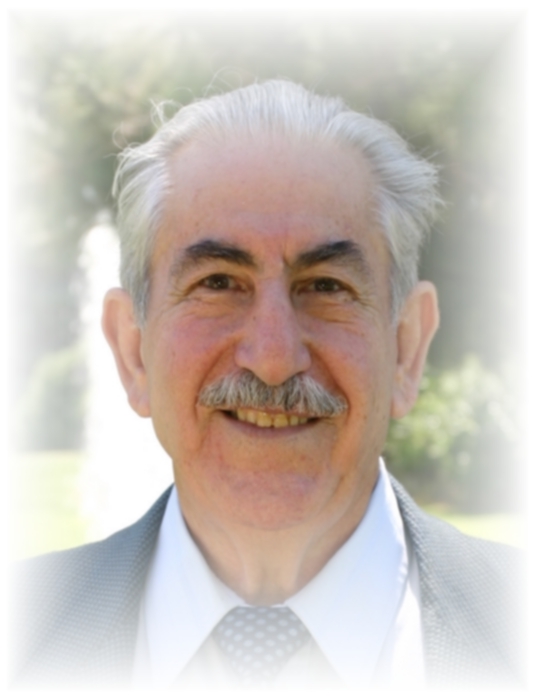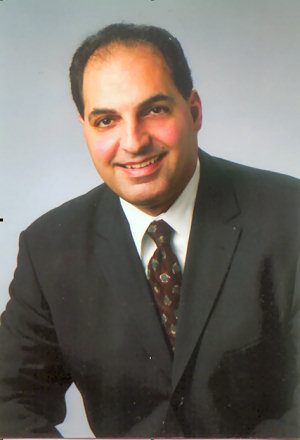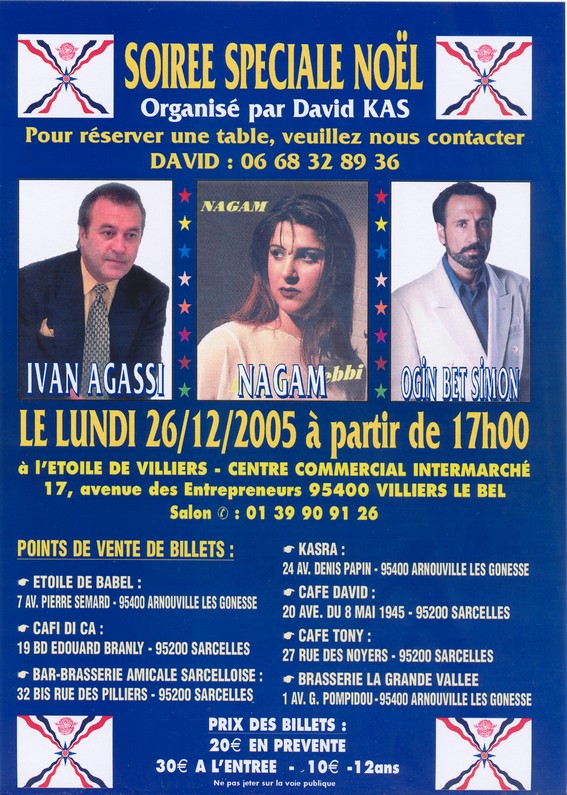|
Volume XI |
|
|
|
Office 202-349-1429 | zcrew@zindamagazine.com | Fax 1-415-358-4778 |
1700 Pennsylvania Avenue. , NW Suite 400 Washington, DC 20006 U.S.A. |
|
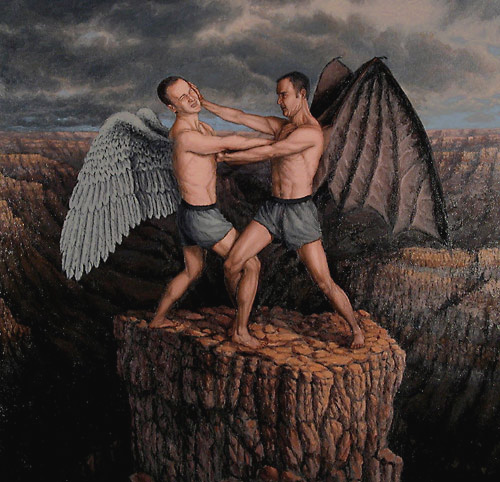
Schism by Sandra Yagi
|
Can A Split in the Church Be Prevented ? |
|
|
|
Reflections on the Holy Apostolic Catholic Church of the East |
Mark Jacob Thomas |
|
|
KDP Stops Assyrian Group From Campaigning
Ten Deacons Ordained in Basra |
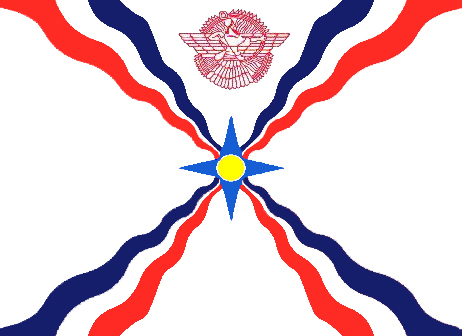 |
|
|
AUA Plea to Assyrian Voters
Iskandar Zamara Dies in Los Angeles |
|
|
|
|
|
Albert Khorshid Passes Away, A Founder of AUA
ACANA Endorses Vote 740
December 13, 14, 15 Are Our National Priority Dates
In Defense of Our Faith
Enough Divisions and Schisms!
Stop & Resolve This Problem Now
The Scope of My Christianity |
Click to Learn More
ZINDA CALENDAR
ZINDA ARCHIVES |
|
|
The American Academic Research Institute in Iraq |
|
|
|
Is There Room for Party Politics in the
Assyrian Political Arena?
Assyrians and the Gulf |
Eva Shamouel
Fadi Butrus Karromi Habash |
|
|
Michael Sarafa to Run Bank of Michigan |
|
|
| |
The Lighthouse
Feature Article
|
|
Reflections on the Holy Apostolic Catholic Church of the East
Mark Jacob Thomas
Chicago
I shall start this commentary with a disclaimer because I want it known that the statements and opinions contained herein are my own and do not represent or purport to represent the opinions or beliefs of any other organizations, groups, or individuals.
Many year ago, the author, Stewart wrote a book called "Church on Fire". It was a book of the missionary enterprise of the Church of the East. It was a story that made one proud to be called Assyrian and member of the Church of the East. It was a story of how our forefathers and ancestors carried the word of Jesus Christ to the Eastern World. Recently, Zinda Magazine used that title to describe the current state of affairs within the Church of the East. It is a story of heartache.
Rumors are rampant. Tale after tale is told by one to another based upon triple and quadruple hearsay regardless of fact or fiction. Tongues wag and fingers are pointed and many glorify themselves in the spreading of a new chapter in demise of our people.
Sadly, no one has spoken of forgiveness. No one has spoken of reconciliation. No one has spoken of PEACE. Regardless of who is right or wrong in the saga that unfolds in our Church the fact remains that our Church, our Nation, and our People are to again be divided.
I ask. No, I beseech, every Assyrian, every member of our Church, Our Patriarch, Our Bishops (all of them), Our Priests, Our Deacons to spend the remainder of this Lenten season (Soma Sura) to PRAY for our Church and our Hierarchy. To pray that God and the Spirit of Jesus Christ enter into their hearts and souls and heal the rift between them. For a nation which drives God out of its soul is doomed, for without a soul a nation cannot survive.
I ask that we pray as individuals and as congregations to bring understanding to the Hierarchy of our Church to make them understand that a " house divided against itself cannot stand". To help them to understand that we cannot reach out to others seeking Christian union without first having union within our own home.
On Internal Reform
The Holy Apostolic Catholic Church of the East has been in existence for nearly 2000 years. It adopted and inserted the name Assyrian only in 1980. The name Chaldean Church was adopted and inserted in the years 1552-1555 when Mar Youkhana Solaqa splintered a portion of the Church. Prior to this date, we all belonged to the Church of the East. Many would argue, and I agree, that after the persecutions of the First World War it was the Church that held us together as a nation.
Our Church and its leadership must recognize that it is an International Multi-million dollar enterprise. The business of the Church is to bring the teachings of Jesus Christ and obedience to the Lord God to the hearts of men. The business of the Church is the salvation of souls. Our Church no longer exists in a village, but in the 21st Century. Financial planning and monetary resources allow the Church to prosper and provide for the needs of the people.
The Patriarch is the CEO of this International business. The Metropolitans and Bishops comprise the Board of Directors. The Priests and Deacons are the front line managers of the Church enterprise. They must be provided a cohesive and consistent plan for the operation of the Church.
A financial audit should be conducted of each Church Diocese each and every year.
The Constitution and Bylaws of the Church Corporation that exists in the United States must be adopted and implemented in every Diocese around the world. These are the internal operating procedures of the Church and do not contravene the laws of any country where our churches exist, be it America, Europe, Australia-New Zealand, or the Near East.
The Church Constitution and Bylaws must also be expanded to incorporate Church Canonical Law and must not contravene Canonical Law.
Church Cannons should be published and made available to everyone. Why should the laws of the Church be kept secret from its membership.
Church finances must be published quarterly and each parish membership should be allowed to see the financial condition of their church.
Budgets should be prepared for each and every year for the Patriarchal Fund, each Diocese and each parish.
Membership should be based upon pledges, not dues, predicated upon the budgets of each parish and diocese.
On Accountability
The Church, its hierarchy, and all of us who are members must be accountable for our own actions. First, to God and then to ourselves and to one another.
It is not my position, or the position of any member of the Church to judge. I am human and I make mistakes as all men do, regardless of their positions.
I pray that commencing the first of the year, 2006, the Church hierarchy hold itself accountable for its and their individual and collective conduct.
Canonical law was established to govern matters and should be adhered to.
Forgiveness should also be employed, not a situation where each speaks to the transgression of the other.
First, we all must look to the mote in your (our) eye before pointing out the mote in your (our) brother's eye.
Maybe a Camp David Accord is necessary so that all of our Metropolitans and Bishops can gather in a retreat and greet one another as brothers in Christ and heal the wounds that beset them.
On Liturgical and Other Reforms
Liturgical reforms and modernization of ideals, particularly with an emphasis on the youth, must be the first priority of the Church.
Aramaic is the liturgical language of our Church. It is the language that binds us with the Chaldeans and members who follow the birth of Our Lord on the 7th day (Showa B'' iarkha). It must be maintained as the language of our Church. However, it cannot and must not supplant faith and the teachings or doctrine of our Church. Rather than open our church to others we have built a fence around ourselves to keep others out.
I was born, baptized, and raised in the Assyrian Church of the East. From my childhood I heard and recited liturgy and songs in Aramaic. However, not until I was in my mid-forties was I able to read a book to understand what I was saying or what was taking place during the Mass. Not until I was a middle aged father was I taught that the Church operates in seven (7) cycles and the songs and chants and hymns are relevant to each 7-8 week cycle of the Church. Despite my lack of understanding I felt warm and comfortable in my Church. I felt a sense of belonging and fellowship with other celebrants. The Aramaic is beautiful and the chants and hymns just don't sound the same in English, but I must ask, as must all of us, especially Our Hierarchy, what is more important, Language or understanding.
I pray that our leadership in the Church recognize and understand that each Diocese and each city where we have parishes have different people and different ways of thinking about the Church. My paternal grand-father built the first "Assyrian" Church in the United States in Flint, Michigan. He raffled off a 1936 Buick which he had won as a suggestion at the Buick Plant for fifty cents a ticket until he raised enough money to build the Church basement.
I look at this Church now and cry for what it has become.
I pray that our Hierarchy recognize and understand that our Church in America was nearly dead until the arrival of His Holiness, Mar Dinkha. It has undergone tremendous growth under his leadership and must be applauded. I pray that this same Hierarchy recognize and understand that much of the growth of our church in America and around the western world is due to their (our hierarchy) being the beneficiaries of the actions of Saddam Hussein and the Ayatollah Khomeini, who through the persecution of our people, coupled with the civil war in Lebanon, did more to revive the Church with new and massive immigration than any acts of our Hierarchy.
I pray that our leadership will recognize and understand that in another two generations we will no longer be an "immigrant church", but must be one that adapts to the society we live in and bring people to our church, not shut them out because of language.
I pray that our leadership recognize and understand, before it is too late, that the revival of the Church in places like Chicago and California and Australia and new Zealand and Europe will be short lived unless it adapts to the modern society in which it now finds itself.
The Church in Flint was first built and served Immigrants of the First World War who passed on their faith and traditions to first generation Assyrians like my parents, then to second generation Assyrians like myself. Now, in Flint, we have the third and fourth generation of Assyrian-Americans, most of whom have married outside of their community. Most, if not all of who, now attend other churches because either they, or, their spouses, or, their children do not speak, read, write, or understand either Aramaic of Assyrian.
Why must the doors of our Church and the beauty of our simple, but eloquent faith, be lost because language takes precedence over faith?
This phenomena has not yet reached its full fruition in Chicago or California, or even Australia, but wait another 20 years. What steps are being taken or even discussed to deal with this issue? How does our Church attract and maintain members who neither read, write, or speak Assyrian? How do they maintain or attract membership to those persons whose spouses and children and grandchildren do not speak Assyrian?
I have been told by certain members of the Hierarchy that it is the responsibility of the parent to teach the children about the church and its traditions. Respectfully, I disagree. My grandmother, for example, lost both her parents to the genocide that swept our people by Kurds and Turks during WWI before she was 8. She spent six years running from one refugee camp to another before she arrived in Canada and was married off at age 14. She was not old enough to be taught. Thus, she taught my mother the best she knew. My parents taught me what they knew. However, all of this knowledge was limited due to the circumstances that befell them.
Did our Lord Jesus Christ not speak to his disciples and the people in the language they best understood? At the time, Aramaic. When our missionaries went East to India and China did they not speak in the language understood by the people they converted? Why then is there no thought or insistence to introduce English in our Masses and sermons?
Christ commanded his disciples to " feed my sheep". He did not mean food. He meant the word of God. What benefit is there to receive these gifts if they are not understood?
I pray that our Hierarchy recognize and understand that for every child they attract to the church that child brings two parents. I pray that our church leadership discuss and consider the need for youth pastors. Young men and women of the Church trained to deal with the issues of the young. To teach them the word of God. To teach them the tenets of our faith. To create an environment where they wish to belong and associate with and share fellowship.
I pray that our Hierarchy allocate funds and resources to establish a catechism class for our young children. Seventy (70) years of a Church existence in America and we still do not have catechism classes or books.
I pray that our Church provide counseling services for those in need and senior services. Create programs where our grandparents can interact with our children and teach them about our people, our church and our community.
On Christian Union
I pray that our Hierarchy continue and vigorously pursue union with our brothers in the Chaldean Church. For 1500 years they were members of the Church of the East. It is only 500 short years ago that they became known as Chaldeans. Now, some seek to establish a national identity from this Church affiliation. Only through unification and education of our children and grandchildren will our people recognize who they are and where they came from.
You can call a Dinosaur, George. He is still a Dinosaur
Rather then take the adamant and divisive position advocated by some in both the Assyrian and Chaldean communities on name recognition or establishing a hyphenated name, would it not better serve both our communities and Churches to accept and agree upon what we know is true to both. That is, we are both Eastern Christians living in a sea of Islam. Rather than argue over our names should we not focus on our similar Christian identity and celebrate the differences between us.
Rather than take an isolationist policy of cutting off all dialogue and communion with Rome, why not open and aggressively pursue communion as Christ commanded, yet maintaining our own identity and independence.
Rather than walking through life in fear of losing our identity we should be secure in our faith and Church and open our arms wide to embrace what we can learn and share with others. To make ourselves a stronger and better Church for our nation. One that has adapted and evolved into the 21st Century.
On Iraq
The Church together with the Chaldean Church should be in the forefront and through dialogue and respect with the various civil organization establish and implement a plan for the purchasing of our ancestral homeland in Iraq. The Church should encourage our people and organizations to establish a national trust, or business organization, wherein we purchase the Nineveh Plain, parcel by parcel, not matter how long it takes. Our Church, whether known as the Church of the East, Chaldean Church, or Jacobite Church must take immediate steps to stop the perpetual refugee orbit that has plagued our people for the last century. The Church in conjunction with other organizations must work not only for the land ownership, but business enterprises that will keep the small remnant of our people that still exist in Iraq on their lands and allow them to live and prosper and end the cycle of flight from our ancestral homeland.
Long after I and the members of current Church Hierarchy leave this earth the Assyrian people and the Assyrian Church of the East will carry on. The questions is, in what state of affairs will it find itself. If all that is desired is to maintain the status quo we shall all be perpetually doomed to a Church on Fire intent on burning itself out.
 Mr. Mark Thomas is an attorney in Chicago and has served the Assyrian American National Federation and the Assyrian Church of the East, and other Assyrian organizations as legal couselor. Mr. Mark Thomas is an attorney in Chicago and has served the Assyrian American National Federation and the Assyrian Church of the East, and other Assyrian organizations as legal couselor.
|
|
Good Morning Assyria
News From the Homeland
|
Kurdistan Democratic Party Stops Assyrian Group
From Campaigning
A Report by the Assyrian International News Agency
The Assyrian General Conference (AGC), a political group representing Assyrians in Iraq, has accused the Kurdistan Democratic party of obstructing its campaign for the upcoming Iraq election. AGC released the following statement:
Throughout the election campaign for different slates that was started by political entities for the coming election in Iraq, a group of supporters and members of the Assyrian General Conference slate (800), started posting and hanging banners in the majority of Assyrian villages in Dohuk (Nohadra) Province. While one of the groups of the (Assyrian General Conference), were posting the election posters and hanging banners in the Assyrian county of Mangesh on the morning of Monday the 5th, 2005, they were stopped by armed members of the (Kurdistan Democratic Party). The same armed militia destroyed all the posters that were on the walls, confiscated 3000 posters, 25 banners and ordered the group to leave Mangesh. One of the (Assyrian General Conference), unarmed member asked why you are doing this? He was told "we do what we want, and you leave and don't come back again". (The Assyrian General Conference), has filed an official complaint about this incident with the (Independent Electoral Commission of Iraq), Dohuk branch. The AGC was told that they will forward the complaint to the main office in Baghdad and wait for their reply.
Our question to the election board is, would we have enough time to promote our slate after getting your response that we have started in a very transparent way especially in the Assyrian county of Mangesh? We would like to tell our Assyrian patriotic people in Iraq and the Diaspora, that such encounters and intimidations will not discourage us to continue and accomplish the resolution of (Assyrian General Conference), that was declared last August on Assyrian Martyrs day (click here). The (Assyria General Conference), slate (800), will continue to be the true voice for our indigenous Assyrian people.
Assyrian General Conference
Media bureau
Tuesday, 6 December 2005
Ten Deacons Ordained in Basra
Courtesy of the AsiaNews
6 December 2005
(ZNDA: Basra) The ordination of ten Chaldean Catholics as deacons in Basra last Sunday has given believers hope in the future, this according to Mgr Djibrail Kassab, Archbishop of Basra, who spoke about his congregation’s expectations vis-à-vis the upcoming elections and Christmas.
Last Sunday, the Archbishop celebrated the closing mass of the Year of the Eucharist. “Two days ago,” the prelate said, “we celebrate the Feast of the Annunciation according to the Chaldean liturgy.” Ten new deacons were ordained on this occasion.
 |
Chaldean faithful worship on Sunday in Basra where 10 deacons were ordained. |
“The church was full. We were about 350,” he noted. “We could read happiness on the faces of the faithful and the new deacons.”
“These are always moments of great joy,” he added.
Things are calm in Basra at present, but residents are worried about the future.
“We shall pray for peace and security on this Christmas as well. People are looking forward to the December 15 elections as an opportunity for having confidence in the future,” he explained.
Parishes in the diocese are preparing for Christmas ceremonies and carols.
“We expect celebrations will take place regularly,” the Archbishop said.
“The mood amongst Catholics and all the people of Basra is positive,” Archbishop Kassab concluded. “There is a sense things are improving”.
|
|
News Digest
News From Around the World
|
|
AUA Plea to Assyrian Voters
Press Release
Assyrian Universal Alliance
Executive Committee
December 2, 2005
As we approach the date, December 15, 2005, of coming parliamentarian elections in Iraq, Iraqi
voters, including our Assyrian people, will elect a new Iraqi National Assembly, which will plan
the future of Iraq for the coming four years. The importance of the coming elections is that the
new assembly will adopt a new constitution that will organize the structure and the future political
system in Iraq. It is very important that the Assyrians, also known as Chaldeans and Syriacs,
involve themselves in the elections to guarantee our proper representation in proportion to our
political and social weights in Iraq.
The Assyrian Universal Alliance (AUA) tried to work with all political groups to have one
national slate to represent all groups but we failed toward that end for different reasons. However
the AUA believes that the Assyrian political organizations should put their persistent differences
to one side and agree on how to achieve national reconciliation and ask the supporters of all slates
to show their solidarity for the sake of our nation.
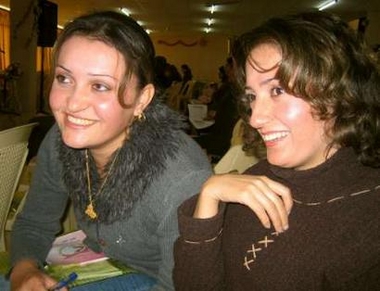 |
| Two Assyrians, Randa Amer Matti (L) and Ahlan Noel, attend a pre-election gathering at a women's centre in Nineveh province in the town of Baghdede (Qaraqosh) on 3 December 3. Photo by Reuters' Deepa Babington. |
Although the AUA have some reservations on the new constitution, which was adopted through a national referendum held on October 15, 2005, we think it is very important that our people seize
the opportunity of the elections to show their support toward building an Iraq constituted on principles of democracy, human rights, and equality for all citizens, irrespective of their ethnic background or religion; an Iraq that is democratic, multiethnic and based on the rule of law; an Iraq that enjoys full sovereignty and territorial integrity. Furthermore, we hope that the new national assembly will look into our concerns and revise a few articles in the constitution that we have reservations about. In addition to other points or concerns of other segments of Iraqi society, the constitution should provide a basis for a new and democratic Iraq.
As we follow the developments of the election process and the preparation for it, the AUA is
worried about the administration of the elections after our people in Nineveh province were
forbidden to vote for the new constitution and in the last elections. However this case is very well
known to the Independent Electoral Commission of Iraq (IECI), and to the Iraqi government and
the allied forces. Our people in Diaspora will play a major role in the coming elections, especially
in adjustment of substitutional seats, which will be distributed on the national level. We should not
be discouraged because of the previous elections, and by now we know that our vote would make
a difference. We have to organize ourselves through our national and political organizations to
increase the percentage of voting which will add to the previous number.
It is our moral obligation to participate and vote in the coming elections for capable individuals
that will be able to represent our aspirations, patriotic, national and human rights, in addition to
their obligations to work for a new Iraq. Our people must put our prosperity and survival ahead of
everything else. If we do not, history will never forgive us. It is the existence of a nation that is at
stake, and we must rise to the occasion, put our trivial differences aside and work together for the
Assyrian people in particular and the Iraqi people in general.
Iskandar Zamara Dies in Los Angeles
A report by Mikhael K. Pius in California
Iskandar Qasha Ablakhat Iskandar, 84, also known as Iskandar Marogi Iskandar and popularly known as “Skandar Zamara,” the former Habbaniya folklore singer, song-writer, poet, monologist, comedian, and in fact a legend passed away of debilitating aging health problems at Windsor Garden Central Valley Nursing Home in Los Angeles, on October 29, 2005. He was laid to rest November 1 at Oakwood Memorial Park in Chatworth (LA) following funeral services held at Mar Shallieta Ancient Church of the East conducted by Pastor Yako Oraha and the church deacons in San Fernando (LA). Participating in the services was also Rev. Gewargis Rasho of Mart Maryam Assyrian Church of the East of Tarzana (LA). He was eulogized by his fourth child Shamasha Sankhero Alexander to only a hundred mourners who partook of the memorial lunch offered at the church hall.
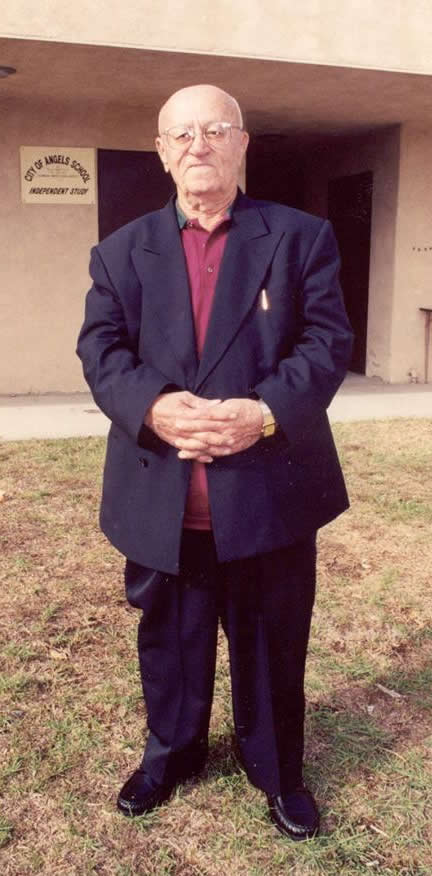 |
Iskandar Zamara |
Iskandar Zamara was probably one of the few Habbaniya Assyrians who could call himself, without doubt, Habbaniyan. He not only lived in Habbaniya for a very long time (30 years) when the average residence period was probably half of this time or a little more, but all of his seven surviving children were born and raised in Habbaniya and five of them had most of their education at Habbaniya and the nearby towns. Iskandar was also probably the most well-known resident among the some 10 to 12 thou-sand Habbaniya local inhabitants. I doubt if there were many among these thousands, including non-Assyrians, who did not know who Iskandar“Zamara” was, including children. He was gregarious, friendly and a loving person, to both friends and strangers alike. In Los Angeles he attended church every Sunday and sang in the choir. He also cooked addas (for which he was noted) when required of him for a church occasion and displayed his skill in the saipa-wo-matala dance in weddings and festivals in his earlier years.
Iskandar Zamara was a legend of his own. You could see him in almost every event that took place in Habbaniya, be it sports, wedding, social, funeral, you name it. And he was in the spotlight all the time. With his amusing folkloric and wedding songs(some to tease maidens), he oftentimes led the line of dancers with professional steps and body rock, shake and swing. His funny anecdotes or jokes never failed to bring laughter and his mournful dirges for the dead (most of which he composed himself) during wakes and funerals always generated wails and flowing tears. He was a great entertainer (and comforter) and he did all this voluntarily as a service to his people.
Iskandar once told Qasha Yako Orahaa long time ago: “I never sang and danced in my own mother’s wedding as much as I did in your wedding.” Ironically enough, Qasha Yako Oraha returned the favor by singing religious dirges at Iskandar’s funeral when he buried him.
Iskandar was born in Amediya in northern Iraq, in 1921. His father was Qasha Ablakhat son of “Doctor” Iskandar of Lower Teyareh in Hakkiari and his mother was Panna Yosip of the village of Mawana in Targewar, Iran. Iskandar was six months old when his father, who was a herder, died in Tiyareh Mountains. A few years later, his mother brought Iskandar down to Mosul and she was later remarried to Haroon Esho of Upper Teyareh in Giyarah, Iraq. Iskandar was taken care of well by his step-father, as promised his mother, and was pampered and left to develop in his own natural way especially during the years his mother bore three other children for her new husband.
Iskandar’s had some elementary schooling while his step-father served in the Assyrian Levies in the northern Iraq and in RAF Station in Hinaidi in central Iraq. When the family moved to RAF Station of Habbaniya in late 1930s Iskandar started working to help his step-father in taking care of the family.
Iskandar was married in 1947 in Habbaniya to Virginia “Varjo” Israel of Armujagha, Gavilan origin. Between 1948 and 1967 the couple produced nine children, four sons and three daughters of whom survived. Iskandar worked at various kinds of jobs, among them as a “chokidar,” (security guard) a NAAFI canteen hand, and he finally enlisted in the Iraqi Air Force.
When Iskandar and family left Habbaniya in 1970 they settled in Gailani Camp Baghdad, where his step-father soon after died. Iskandar continued to serve the Iraqi Air Force, where he was loved and pampered by both officers and men, his last rank being a warrant officer. But in 1980 he and his whole family packed up and left Iraq for Greece. There they lived for two years, mostly on aid. His son Sankhero managed to come to LA first and the rest rejoined him shortly after, except for Iskandar’s mother Panna who died that year in Kirkuk, Iraq. After living in LA for 22 years Iskandar, his wife and daughter Shamiran and family relocated to Turlock. But one year proved that they “did not like the weather,” and they returned to LA, where his eventful life finally came to an end shortly thereafter.
Iskandar is survived by four sons and three daughters: David Iskandar Marogi and family in LA; Rosa Behnam and family in Baghdad; Albert Iskandar Marogi and Sh. Sankhero Iskandar Marogi and family in LA, Elishwa Esha and family in Baghdad; Shamiran Davido and family and Ashoor Iskandar Marogi and family in LA; by siblings Gollizar Khoshaba and Yosip Haroon Esho and their families in Baghdad; and by six grandchildren.
|
|
Surfs Up!
Your Letters to the Editor
|
Albert Khorshid Passes Away, A Founder of AUA
Carlo Ganjeh
Secretary of the Americas
Assyrian Universal Alliance
It is with great sadness we inform you that Mr. Albert Khorshid passed away in Los Angeles, California today, Tuesday, December 6, 2005 at 6:00 am.
One of the founders of the Assyrian Universal Alliance (AUA) and a pioneer of the modern Assyrian nationalistic
movement, Albert Khorshid carried diplomatic missions on behalf of the Assyrians and was entrusted with many legal
documents vital to the Assyrian struggle.
A memorial program will be held on Friday, December 9 starting at 12:00 noon at the St. Mary’s Parish of the Holy
Apostolic Catholic Assyrian Church of the East in Tarzana, California located at
5955 Lindley Avenue
Tarzana, CA 91356.
Interment will be at the Forest Lawn Cemetery located in Hollywood Hills, California.
We extend our heartfelt condolences to his family and the Assyrian nation worldwide.
ACANA Endorses Vote 740
Executive Committee
Assyrian Chaldean Athletics of North America
On behalf of the executive committee of the Assyrian Chaldean Athletics of North America (ACANA), along with our member clubs we are honored to endorse and express our strong support for the Assyrian Democratic Movement (Zowaa) & the Al-Rafidian List 740 under the leadership of Mr. Younadam Kanna for the December 15th elections in our homeland. The Assyrian Democratic Movement’s aspirations of uniting our nation has enflamed the nationalistic fervor inside of us and made us aware of our political position within the new Iraq.
ACANA also is committed to having success for our athletes as you have been achieving for our people. ACANA is an independent non-profit national athletic association, established for the purpose and objective of serving the needs of the ChaldoAssyrian athlete/team. Every year ACANA organizes 3 tournaments: First one in April during the Kha b'Neesan Akitu celebrations, Second in July during the Canada day and July 4th celebrations and third in September during the Labor Day weekend. We are working hard to achieve the ultimate goal of having all ChaldoAssyrian players/teams reach the top level in all sports.
Our struggles will continue if we don’t tackle them with one voice. That one voice is the Al-Rafidian List 740 under the leadership of Mr. Younadam Kanna. It is our hope that the Al-Rafidian list 740 will win and get its mandate to continue & lead our great nation.
December 13, 14, 15 Are Our National Priority Dates
William Aprim
United States
God Has Spoken!
It is amazing news all around the world, first time in the history of this nation, people coming together and crying loud without fear urging public awareness, and spreading the word of God, our Lord Jesus, to unit our national spirit, review the disfranchised purpose and undo mistakes of the past. Division has killed our rationale thinking during 20th century, and the evil is still working today for our total disintegration.
It would seem and sound tragic and irreparable damage if we fail to accomplish our target of putting more people to represent us in the upcoming Iraqi Election. This is indeed a good factual test since all participants, candidates, are calling for providing responsible leadership, if elected. Well, to all those who call themselves capable of such prudent and sincere promise, we ask most humbly these few questions:
- What will be your position should we fail to secure comfortable seats as a result of having too many candidates, knowing the difficulty and the huge number of votes required for each seat?
- Should we fail, as a result of (1) above, who will be held responsible for the welfare of our people who are currently living outside the country, as refugees. These people are eagerly awaiting for the Iraqi Election results that will put great and capable leaders in Government positions in order to pave the way for their return to their homes, as normal eligible inhabitants deserving to live in peace and freedom.
- What will be your answer should we fail to secure a proper and legitimate identity as a result of our disagreement, can you face your people and look them in their eyes?
- The election is for four year term. What will happen, God forbid, if there is a total failure in our current misaligned effort. Who will be blamed next?
Dear brothers and sisters, children of our noble Assyrian Nation, what we will loose if we take advantage of this gifted opportunity today presented to us, as a wish and hope in our life time, to take a break from the past and work together to form a united stand and face the challenge as prudently, and sincerely possible. Winning big in this election requires hard work, determination, love and forgiveness for each other, no other way can lead us to our goals.
Time is running out, we still have the opportunity to review our past, think beyond personal ambition, lock your thought in spirit and responsibility for your family, your children and the next generation. Let your heart and brain be connected before you cast your vote. This vote is different, it concerns your life,pride, and noble aspirations for a homeland called ASSYRIA, that includes this humble race from different sects,religion, such as: ChaldeanSyriacAssyrian.
Vote with confidence, vote with pride, vote for slate #740 - which is the only hope today for our salvation.
In Defense of Our Faith
Anthony Garia
Reader and Member
Mar Yosip Assyrian Youth Ministry
San Jose, California
In the recent tumultuous upheaval in the Church of the East, our faith has been too often neglected and more often abused in the incessant attacks against the person of Mar Bawai. In this excitement, people are forgetting to stop and consider what is being said, and whether those sayings conform to the beliefs and intentions of our Fathers. In their rush to accuse and condemn, they often overstep boundaries that have been set by our Tradition, as kept and handed down to us through the centuries. What results is the same heresy that our great Fathers had defended against, in their synods, proclamations and writings, and in liturgy as well.
On the surface, David Malick's letter in Zinda Magazine [1] seemed to be a very cursory briefing of historical issues plaguing our people and a defense of the Church of the East; however, in reality, it was a polemical attack against apostolic teachings and traditions, filled with rhetoric abhorrent even to the teachings of the Church of the East itself. This reply is from a faithful of the Church of the East, in defense of our traditions and our claims to catholicity. I write in hope to enlighten fellow readers or, at the least, to plant the seed of desire for further investigation into these matters.
From the biblical point of view, religious unity and the full communion that it implies is a necessity conforming to the wishes of our Lord Jesus Christ. In the Gospel of John, He prays that His disciples “may all be one” [2] . The biblical primacy of Peter is clearly evident in the New Testament; all apostolic denominations acknowledge Peter as first amongst the Apostles.
It seems that the arguments against unity are not biblically based, but rely on a quagmire of assertions based on pride, self-identity, and a shallow understanding or appreciation of Christianity's faith and history. We need to be more honest and careful when looking at our faith, history, and tradition.
As Regards Faith
Our profession of faith, the creed which we recite every Sunday, plainly decrees ONE Church, Holy, Apostolic, and Catholic. Let us examine what that means. Holy is plainly and undisputedly understood.
LINDA BADALOF |
|
|
|
|
|

Fluent in Assyrian |
COMPLIMENTARY
1-Year Home Warranty Plan
Home Buyer's Pro Inspection
Fall-Time Cleaning Service
Call for details - Gifts not to exceed $1,000.00 - Provided at the close of escrow. |
25101 The Old Road
Santa Clarita, CA
Direct: 661.284.5097
Cell: 661.645.4290
Yahoo ID: LindawithREMAX
lbadalof@sbcglobal.net |
|
As an apostolic tradition, the Church maintains its authority based on the concept of apostolic succession. Each bishop is ordained and empowered by apostolic succession through the medium of laying of hands. A bishop is ordained as the high priest, the shepherd for his flock, in succession to and with the authority of a line that stretches back to apostolic times.
As a catholic church, we believe that our Church is universal, not just on earth and right now, but outside of space and time and any other dimension our mortal brains can think of or invent! The Universal Church exists with Jesus as its head sitting at His Father's right, in heaven. The angels, apostles, saints, our dead who are to rise again, and those to come but not yet born... all in one communion with those alive right now in the Church.
This is the "Great Body" that, as Mar Bawai points out, is proclaimed in our Holy Qurbana every week:
In your mercifulness, my Lord, you have deemed the vileness of our feeble nature worthy to be made recognized member in the Great Body of the Holy Catholic Church, to administer spiritual assistance to the souls of the faithful. [3]
The only logical deduction from such a communion is that which was given to us by divine revelation: there is only one Church. The body comprised of the faithful is one; the communion, in which they live, in LOVE, is one. This is according to the will of Christ.
Love, “agape”, is the force with which communion is held. The body of bishops is united through love. The hierarchy of our Church, and for that matter all churches, coalesces into one unit as the body of Christ, through and in love, by the actions of the Holy Spirit. Neither, honor nor influence is the determining factor in this process; only true Godly love binds the various congregations and bishops into a unit, and only through it, is primacy established. This is the love that our Lord Christ commands of us, demanding that we abide in it: “As the Father has loved me, so I have loved you; abide in my love.” [4]
These factors constitute the underlying justification of Mar Bawai's statement:
If the patriarchs of the apostolic churches have legitimate authority over their own respective bishops it is so because there is a principle of primacy in the universal Church. [5]
I am only giving a rudimentary introduction into these concepts as this is not the forum for ecclesiastical debates. Ecclesiastical and theological beliefs have been well documented in many church documents and by many church theologians of different denominations. CIRED (www.cired.org) is an excellent source from the point of view of the Church of the East.
As Regards History
The doctrine of papal primacy was systematically defined through the centuries by careful investigation into the Bible, and oral and written traditions, including liturgy and history. The observation of the Papal position being "ever-orthodox" was made by looking into the disputes and heresies that plagued the Roman world and realizing that the official proclamations by the Roman See were consistently orthodox.
Disingenuous claims that Roman primacy developed due to political and economical reasons completely disregard that by the time Pope Leo spoke, in authority, furthering the primacy of Rome over the Universal Church, Rome had not been the center of the Roman Empire for a while, Constantinople having overtaken it in exaltation. In fact, Rome had already been sacked previously by Alaric. Ravenna had then succeeded it as the residence of the western emperor, thus superseding Rome, even within Italy itself. Rome was to be almost sacked by Attila, saved by Pope Leo in what can only be seen as a miracle. In short time, it was sacked yet again, this time quite viciously by Gaiseric. It was not long later that the last Roman emperor of the “western” Roman Empire would be deposed.
Studies into history show that there was something more complicated and universal at work when the Primacy of Rome was being developed during the first millennia. In fact, Rome's original importance as the capital of the empire was, all the more, a reason for the two apostles to be active in that great city. But there is something else about David's letter, something more insidious. Subsisting beneath the surface of his sprint through history was a biased attack against the justification of Papal Primacy. No mention was made of the honor in which Rome was held even in the patristic times. Centuries of scholastic endeavor in this field was disregarded, while completely skipping any mention of writings of the Early Church fathers, such as Clement and Ignatius; mention of such writings from some of the earliest saints and bishops would disprove their skewed view of ecclesial history.
As Regards Traditions
Similarly, we have our own traditions in the Church of the East, with our own writings and teachings from our own saints and theologians, which stand in harmony with the historical conclusions derived in the west. The Church of the East always saw itself as one body with the churches in the west.
This is not only evident in our liturgy {a section of which was excerpted earlier in this letter) but also in the history of this liturgy. The creed from the west, accepted, adopted, and placed into our mass, relay our belief in ONE church. The anaphorae, which were translated and adopted from the west, show our willingness to be united in our Eucharistic celebration.
In continuing to investigate the writings of our saints, we find not only constant reaffirmation of the Ecumenical Church, but also confirmation of the primacy of Rome as the see of Peter. If we are not willing to accept the Synodal Collection of Mar Abdisho, will we also discount the writings of Mar Babai the Great referring to the Pope, the "marvelous Leo", as the holder of the see of great Peter? [6]
Will we also discount our liturgical tradition when during the Feasts of Saints Peter and Paul, it announces:
Blessed are you, O Rome, renowned city of kings,
handmaid of the heavenly Bridegroom!
For the two true preachers are laid up in you as in a harbor:
Peter, the head of the apostles,
upon whose truth our Savior built his faithful church,
and Paul the elect, apostle and builder of the churches of Christ.
By their prayers we find refuge,
that mercies and compassion may be granted our souls. [7]
No! An examination of our traditions and liturgy prove that our church believes in a Catholic {Universal} Church, with Rome holding a position of primacy as the See of Peter and the location of his martyrdom. Just as our synod proclaimed our Patriarchate to be Peter for us, as the head of our ecclesiastical council separated from the Universal Church, so also the holder of the See of Peter, Rome, is the Peter of the Universal Church's council. The same governing forces that hold the bishops in communion with each other within the Church of the East are at work in the Universal Church.
Primordial Church
But already, we have gone too far in history and literature, while skipping past the most blatant proof of a Universal Church: the first Church, with all of its members, prayed as one, acted as one, and was one! In Acts of the Apostles, we see that when the Apostles pray, they pray in unison, together. [8] And when we see Peter standing up to address the crowd, we see that he stands up together with the eleven. [9]
That the Catholic, Oriental and Eastern Orthodox churches are not in full ecclesial communion is not an argument against ecumenism. For sure, ecumenism demands that they are in full communion and that is why those churches are in an ecumenical dialogue and taking steps towards that communion. As Apostolic churches, they cannot possibly remain out of communion with each other. As an Apostolic church, the Church of the East cannot possibly remain out of communion with them.
Anti-Papal Polemics
After an incorrect, incomplete, and misinterpreted recounting of history, David proceeded to blast in with full-fledged anti-Latin rhetoric, calling papal supremacy a "doctrine of pride and arrogance clothed in a pretended Christian humility". The statement has not been justified by him, and is a malicious attack against something that he either cannot, has not put effort to, or simply has no desire to comprehend - stubbornly maintaining a skewed perspective on matters. Only arguments of pride and arrogance have been put forth to deny papal supremacy. It seems quite odd to brave such an attack from someone who paradoxically defends the ultimate supremacy and infallibility, to the point of inerrability, of the patriarchal seat of the Church of the East. "First remove the beam out of your own eye, and then you can see clearly to remove the speck out of your brother's eye." [10]
It is a gross oversimplification to make this an issue of independence versus hegemony. The Chaldean Church's insistence of full communion with Rome is not contrary to its desire for the self-governance and the maintenance of its own traditions. Based on his observation of "most" Roman Catholics, the statement was made that the equality of the Eastern Rite and the Latin Rite "holds no weight". Personally, I find that generalization insulting to members of both their denominations. But personal observations hold no real weight. I have had discussions with many of my fellow Assyrian Church of the East members, in which they were astounded and absolutely refused to permit me to refer to OUR church as a Catholic church, saying quite ignorantly it is an Assyrian and not a Catholic church. Yet this is no grounds for pronouncing anathema against my church as a heterodox preacher of church superiority based on ethnicity. We would need proofs, such as incorrect creeds, catechisms, official pronouncements, or hymns that may have been introduced into liturgy. Personal observations are not proofs, but I'm afraid to many of our people too often fall into their own biases and emotions in making their conclusions.
I have refrained from personal attacks against any of the clergy or other personalities involved in this issue. Nor will I dignify any malicious and misguided attacks against Mar Bawai by replying to those ordurous accusations. This letter was only to enlighten our fellow Zinda readers on certain matters; however, I too share people's suspicions that the issues are not religious at all, but rather political and personal. Mar Bawai is concerned with the spiritual salvation of our people, and is working in accordance to the will of Our Lord and His prayer that we be one as proof that God is one. It would take considerable negligence and gross misinterpretation of Scripture and Tradition for his expulsion to have been religiously motivated. These issues should really be decided amongst the magesteriums of the churches by theological arguments and debates, historic surveys, and doctrinal developments, all with the involvement of and consultation with experts and doctors in their respective fields.
Unfortunately, it seems that scriptural support, theological arguments, and unbiased historical analysis is not used by those in support of maintaining a separate and completely independent {out of communion} entity as an Assyrian Church. There is no discussion of Eucharistic unity versus Universal Church or similar arguments, but only an oversimplified, incorrect, and misleading recounting of history and traditions. They banter about on concepts and "primacy in honor" with a total disregard for what truly is at the heart of the matter. An Ecumenical Church means one visible head; in fact, the concept of a "Universal Church" presupposes a single visible head.
In Concluding
"We know that all things work together for good for those who love God." [11] I see this time of upheaval in our Church as an opportunity to enlighten our people in God's words and the faith of our Fathers. We must use this time to teach and evangelize even stronger. Our joy will be made complete only in spreading the Good News for the salvation of people. [12] It has been said in ancient times, that heretics persuade men before instructing them, whereas "truth persuades by teaching". [13]
I urge people to investigate, talk to their priests and bishops, read history books, our liturgy, listen to what is said in our Raza Qadisha, and, most importantly, to search the Scriptures. Listen and read with an open mind, and always examine, searching for the Truth, "Shrara." I pray that people's hearts not be hardened, and that they live in God's love according to Christ's commandment to us, living for Him and through Him. Finally, I pray for peace and unity among our people.
Notes
- David Malick, “The Babylonian Captivity of the Church and Nation”, Zinda Magazine, Nov 23, 2005
- John 17:21
- Mar Bawai, “The Position of the Church of the East Theological Tradition on the Questions of Church Unity and Full Communion”, Zinda Magazine, Nov 19, 2005
- John 15:9
- Mar Bawai, “The Position of the Church of the East Theological Tradition on the Questions of Church Unity and Full Communion”
- Mar Babai, Memra 3
- The Book of Khodra, “The Feast of Saints Peter and Paul: the Hymn of the Suba'a”, vol. 1
- Acts 1:14
- Acts 2:14
- Matt 7:5
- Rom 8:28
- 1 John 1:4
- Tertulian, “Against Valentinians I”
Enough Divisions and Schisms!
Assyrian priests studying in Rome:
Rev. Patros Y. Patros
Rev. William Toma
Rev. David Royel (presently in L.A.)
Rev. Semaan J. Daood
Rev. Paul Benjamin
Rev. Akhiqar
This present article is an open letter addressed to all the readers of ZindaMagazine who have a genuine and unbiased love and esteem for the Church of their forefathers, the Assyrian Church of the East. In recent days we have witnessed another unfortunate division amongst our people caused by one of her own ecclesiastical heads, namely, Bishop Mar Bawai Soro, formerly the bishop of ‘Western California’ diocese.
All throughout her 2,000 years of history, the Assyrian Church of the East has witnessed countless schisms and divisions among her faithful; anyone only minimally acquainted with this Church’s history will be well aware of that fact. However, that which is happening before our very eyes is yet a stronger cry for division among the ranks of the Church and her faithful. There are many issues which surrounded the decision of the Holy Synod to unanimously pass a decree to suspend Mar Bawai from the episcopacy; let us look at just a few of these.
At the outset, it is to be mentioned that the Patriarch bears the highest authority in the Church of the East. The convocation of the plenary synod of bishops, or ‘Sunhados,’ receives its authority from the fact that it is convoked by the catholicos-patriarch; if it is not, then it may not properly be called a Sunhados nor are any of its decisions valid or authoritative. It is to be expected by the very bishops who participate in the Sunhados, and the faithful of the Church at large, to abide by the decrees of the Synod. To reason that a decision reached by a unanimous vote among the bishops is ‘uncanonical’ or ‘unacceptable’ is simply ridiculous and, when it comes to canon law, illogical. The canonical tradition of the Church of the East provides for a fair trial for any bishop or cleric under accusation; this was in fact the case with His Grace Mar Bawai Soro who now openly and publicly rejects the unanimous decree of the Synod declaring him suspended from the episcopal ministry in the Assyrian Church of the East.
One of the major issues for this decree of suspension was the fact that Mar Bawai did not allow the Synod to interfere in order to reach a reconciliation among the parishioners of Mar Yosip parish in San Jose, CA. The canons are quite clear that the catholicos-patriarch may at any time, at his own discretion, probe into the affairs of any diocese under his supreme authority as the chief and primatial bishop of the Church; the consent of the diocesan bishop is not at all required! Unfortunately, Mar Bawai accused the patriarch of ‘meddling in the affairs of my diocese’ in his two defamatory letters addressed to the patriarch—his immediate ecclesiastical superior. Neither did Bishop Mar Bawai allow the Synod to send a delegation of bishops and clergy to investigate the whole situation in San Jose and reconcile the disenfranchised faction with their bishop and parish priest.
Mar Bawai should have remembered that when the diocese of Australia was going through trouble in 1985, Mar Aprim Khamis along with Mar Bawai were both sent by the Patriarch to Australia in order to assess the whole situation and report to the Patriarch on the matter. Why is it that he was willing to go to another bishop’s diocese for this purpose, but now is set on not allowing the Synod to ‘meddle into his affairs’? To summarize this point, the words of Peter the Apostle, in his first general epistle, resound loudly to the wise and arduous pastors of God’s precious flock:
“I exhort the presbyters who are among you, I who am a fellow presbyter and a witness of the sufferings of Christ and also a partaker of the glory that will be revealed; shepherd the flock of God which is among you—serving as overseers, not by compulsion but willingly, not for filthy gain but eagerly; nor as being lords over those entrusted to you; but being examples to the flock…” (I Peter 5:1-3)
DAVID YOUKHANA
|
|
ARIZONA
Real Estate-Relocation-Investment |
|
Associate Broker
Certified Commercial Sales Specialist
Realty USA southwest
Glendale, Arizona 85310
Click Photo For More Information |
602-410-9555
|
|
Another point of contention are Bishop Soro’s views concerning full communion among the Churches, in particular between the Assyrian Church of the East and the Roman Catholic Church, and the Roman Catholic doctrine of papal primacy. Now, all Churches (Catholic and Eastern Orthodox alike) admit the primacy of Peter, who is known in the liturgical tradition of the Church of the East as the ‘Head of the Apostles.’ The basic idea is that the bishop of Rome has a primacy of honor and distinction among the other four sees that made up the so-called ‘Pentarchy’ of primatial sees in the West. Please note that this was the primacy of the Church in the West; the Church of the East never took part in those councils which shaped the pentarchy well after the events of the Council of Ephesus (431), which came to signal the estrangement of the Church of the East from the rest of western Christianity.
However, this admittance of papal primacy does not admit for, nor logically lead to papal supremacy; this fine distinction must be made by every avid and meticulous reader of the Assyrian Church’s ecclesiology and ecclesiastical constitution. Even biblical scholars—Catholics among them—have not reached a consensus that the New Testament demonstrates a doctrine of primacy for Peter (who is believed to have been martyred in Rome) with respect to the other eleven Disciples. What sort of a primacy is the New Testament itself advocating for Peter as the foundation of the Church? (cf. Matthew 16:19). Is the New Testament advocating the understanding of papal primacy as it is codified in the codex of canon law in vigor in the Latin and Eastern Catholic Churches? The answer, simply put, is no! To move from the New Testament to the Catholic understanding of papal primacy (from which later doctrines such as papal infallibility, defined at the First Vatican Council of 1870) is not a logical development nor should it be accepted by the Church of the East.
Mar Bawai has also made it known in his ‘manifesto’ submitted to the Synod of the Assyrian Church that without a recognition of the ‘universal primacy’ (i.e., the primacy exercised by the head of the Roman Catholic Church) and retaining communion with that primacy, all the primacies of the particular Churches headed by a patriarch (among them the Assyrian Church of the East) are invalid and uncanonical. Hence, the legitimacy of the supreme authority of the Catholicos-Patriarch of the Church of the East is contingent upon the very Patriarch’s retaining full-communion with the bishop of Rome! It is interesting to note that Mar Bawai avoids the use of the word ‘Catholic’ in his official statement of belief (or, ‘manifesto’) presented to the Synod, and simply yet subtly refers to an ambiguous ‘Universal primacy.’
The greatest flaw in his statement on full-communion is that his point of departure is the ecclesiology of the Roman Catholic Church, not that of the Church of the East. In the early 1950’s, under Pope Pius XII the Catholic Church was described is equaling the ‘Church of Christ’ (i.e. Roman Catholic Church = Church of Christ). During the Second Vatican Council that formula was slightly modified so as not to offend the other Christian Churches and denominations. Now, the official formula is that “the Church of Christ subsists in the Catholic Church.” This means that the Church which Jesus Christ founded subsists (exists under) completely and unequivocally in the Roman Catholic Church.
First, the Church of the East does not deny that Peter is the head of the apostles. However, to make the move from the understanding of Peter as the head of the apostles to the pope as the head of the whole Christian Church is quite a leap, with many ‘missing links’ involved. In no document of the Church of the East has it been demonstrated that this Church practically and actively accepted the primacy of the bishop of Rome. Secondly, the point mentioned in his ‘Manifesto’ that:
“…the Church of the East will unite with the Chaldeans and the Old Calendarists; they will become again the one, united Church of the East. Then they will be able to bring about a progress that will have one stand and one mind in order to dialogue and discuss with the Catholic Church concerning the ways by which this new, unified Church of the East may preserve her spirituality, canon law, liturgy, theological expression and self-governance.”
The level on which the Assyrian Church of the East is to dialogue with the Old Calendarists (Soorgada Ateeqa) and with the Chaldeans are on two totally different plains. There is no discussion about primacy or dogma with the Old Calendarists; it is simply a matter of jurisdiction. With the Chaldeans, however, both dogma and papal primacy must be discussed since we are on to divergent plains with regard to these essential matters. Also, the Chaldeans—according to modern-day Roman Catholic ecclesiology—already enjoy their own patrimony of canon law, liturgy, spirituality and theological expression. What’s more, they have already accepted the primacy of the bishop of Rome way-back in 1552; they have nothing to dialogue about with the Roman Catholic Church! If that is the case, then why don’t we just dialogue with the Chaldean Church and accept the Roman Catholic ecclesiology and canonical tradition which they accepted in 1552???
Another point raised by Bishop Mar Bawai in his many public allocutions is his promotion of liturgical reform. This issue has always centered around the discussion about the use of the vernacular (leshana khata) in the celebration of the eucharistic liturgy. It should be mentioned that Mar Bawai has celebrating the liturgy in the vernacular since he became a bishop in 1984; hence, for some 20 years now! Which patriarch or synod has ever censored him for using the vernacular in the liturgy? Why synod has ever stopped him for making changes under his own initiative?
Though we are in agreement that the liturgy must be updated and reformed in certain areas, it should never be a ‘one-man show’! The liturgy is not about what a certain bishop or priest feels; it is about worshipping God as a community in the tradition and rites of the Church! The reformation of the liturgy—which many Churches are still undergoing and have not yet perfected—requires the guidance of experts in this particular area. In this regard, Bishop Soro is not an expert in our liturgy! In any case, His Grace has been using the vernacular in his parishes—as has been the case in other Assyrian parishes throughout the U.S.—without any censorship from his superiors.
In his article in the last issue of ZindaMagazine (23 November 2005) entitled “The Babylonian Captivity of the Church and Nation,” Mr. David Malick has astutely outlined many important points of ecclesiology as well as just plain, Christian ethics in regards this whole issue. His comments on Mar Bawai’s assertion that the Church of the East developed both theologically and ecclesiologically ‘in isolation’ are refuted:
“Although the Church of the East was completely administratively independent, it was not isolated or alone when it came to being influenced and being open to the theological developments in the Roman Empire. It was always open to learning what was happening in the whole Christian Church and accepted whatever was accepted by the whole of the rest of the Church. Therefore, the Church of the East recognized the first two ecumenical councils of the Church as soon as it was made aware of them and it was able to hold synods to learn about them and officially accept them.”
It seems that Mar Bawai’s views are very much politically motivated, and that some Assyrian political groups are capitalizing on these views in order to have an outspoken ‘spokesman’ in the camp of the Assyrian Church. We always learned from His Grace Mar Bawai that our job as clerics was to preach the Gospel and not meddle in politics. Unfortunately, lately he has demonstrated the very opposite!
In summary, our call—as the title of this brief article indicates—is to stop the divisions and schisms in the Assyrian Church of the East! Are the Chaldean Catholic and Syrian Orthodox (or Catholic, for that matter) Churches—with all our love and due respect for them—dealing with these thorny issues in their churches? Are their Churches undergoing these schism and arguments? Are any of their bishops ‘going out on a limb’ and imposing their own ecclesiastical/political views on their whole Church? Where is the deep friendship of views which His Grace Mar Bawai once enjoyed with His Grace Mar Sarhad Jammo? For an answer to that, please see Bishop Jammo’s official diocesan website advocating a world-wide effort to promote the rights of Chaldeans in Iraq. Good for them, they have every right to do so. But if they do, don’t you think that the Assyrian Church and nation has the same right??? We’ll leave the answer to the intelligent reader.
We remain in agreement and full support of the Holy Synod’s decision.
Stop & Resolve This Problem Now
Michael Askaro
Australia
I, as an Assyrian and a Christian would like to state my opinion about his Grace Mar Bawai Soro.
|
December 3 & 10 - 9:00 a.m to 10:00 p.m..
Westfield Santa Anita Shopping Center
400 S. Baldwin Ave., Arcadia, California 91007
December 7 - 12:30 a.m.
Assyrian American Christian School
St. Mary's Church of the East Parish
Tarzana, CA
December 11 - 9:15 a.m. to 1:00 p.m.
St. Anne Melkite Greek Catholic Church
11211 Moorpark St., N. Hollywood, CA 91602
December 17 - 7:00 p.m.
Book Signing - Mar Addai Church Christmas Party
Assyrian American Civic Club of Turlock
2618 N Golden State Bl
Turlock, CA 95381
December 18 - 11:00 a.m.
Book Signing - Mar Zaia Assyrian Catholic Church of the East, 1457 Mable Ave.
Modesto, CA 95355
For More Information Click Here |
I am a member of The Holy Apostolic Catholic Church of The East (His Holiness Mar Dinkha is my Patriarch and Mar Meelis Zaia is My Bishop), the first church ever established as a proper religious institution in the world (read letters of Peter), only 37 years after our Lord and God Jesus Christ, when Roman Catholic Church (with due respect to the faithful) had not had a bishop until around 170 years after our Lord and God Jesus Christ, and the first pope was in around 400 to 450 years after Christ, according to THE PAPAL LEGACY, written by a catholic professor of theology in one of the private catholic colleges and this book is well know.
Our Church had had a historical achievements, as our glorious Assyrian Empire had before our Lord and God, Christ, according to books of Daniel and Isaiah (Daniel 4:11-17 the root of the tree stays. Daniel 2:32 head is the good gold. Daniel 7:4 the lion that stands up like a man and was given the heart of human. Isaiah 5:26-30, Assyrian glorious empire before Christ. Isaiah 8:5-8 the water of life after our Lord and God Christ).
Assyrian People have dedicated themselves to the truth from the very beginning and only to the truth from centuries and millennia ago and that is why God loved them.
We Assyrians are genuine and good hearted, as our leaders are, and our leaders do make mistakes as every one of us do. From His Holiness Mar Dinkha IV to His Grace Mar Bawai Soro.
I know Mar Bawai Soro very well, when he unintentionally demoted my father from Archdeacon to a simple priest and I confronted His Grace while in the company of His Grace Mar Meeles Zaia and Aprim Khamis. His Grace could not sleep well for a week until he held my father's hand during the Holy Mass and repeated on and on again "please forgive me" and that is the most modest, and yet deserving the highest honors for our Lord and God Jesus Christ who said "Blessed the Meek, for they will earn the earth (Kingdom of God)”.
I do not believe that His Grace was involved in a conspiracy as some people say. I do believe however, that he made a mistake of ignoring the Holy Synod's decision, although his words or demands to our Patriarch may have been correct. Our Leaders are only human and do make mistake and if anyone says that they do not, then he is not member of our church but member of others who say that their leaders do not make mistake.
I believe that our leaders must look into their own mistakes and solve this problem with his Grace, as his Grace must also do so. All in all, I support Mar Bawai Soro For I believe that he is genuine from the heart, although he made a mistake of going against the Holy Synod, for I believe in what the Bible says, To you Peter, I give the keys to the kingdom of heaven....). Although our Lord called peter Satan and he made a grave mistake of denouncing him when he was betrayed by the unfaithful, yet he became the strength of the true church.
According to the Bible, from which we all accepted our faith and destiny and it held our identity as a whole for centuries, each and every one of leaders of our church is Msheekha (chosen) by God who is the Mashkahna (chooser). They must sort their problems out between themselves and not in a court of Law, because that is against what the Bible teaches us that “no brother shall take another to court” of this world. If there is a spirit of God between them and among them, then they must be meek and must stop attacks against the other person, for if they think he is wrong, then they must think that they had their own share of wrong doings against God, and they will be punished as they intend to punish. They must remember the prayer of our Lord and God, in which we say, forgive our trespassers for we forgave ours. All the leaders, from the Patriarch to all the bishops including his Grace Mar Bawai must remember that they owe this beloved nation of God, Assyria, a debt. Their debt is not to divide and rule, but serve. I, as an Assyrian person and Shamasha, who believes in the glory of the Assyrian nation, before and after Jesus Christ, my Lord and God, do not wish or permit my leaders to cut us into pieces.
As our Lord and God said, "the hidden word that you say between you, will be said on the roofs (of buildings)" and also "man will be judged by the word of his mouth". Our leaders are putting themselves in a situation that one side will be embarrassed before God and Man. My advise is "stop and resolve the problems between you two before you are taken to the real judge" as my Lord and God said "if you know your brother has something against you, you'd better make peace with him before you are taken to the judge".
The Scope of My Christianity
Peter Ibrahim
California
My Mother and Father have always taught me to keep my faith through thick and thin. They have taught me that in times of trouble, abandoning the Lord during such a critical time is unheard of. I myself will not abandon the Lord; I’ve worked too hard. In fact, this is the time when we need Christ the most: through times of trouble, through times of abomination, and through times of suffering for what is right. Suffering for what is right is what our Lord Jesus Christ teaches is expected of a true Christian. We must always distinguish the difference between one who simply calls him/herself a Christian, and one who calls him/herself a Christian, and acts like one. If we turn to our bibles we see a clear definition of faith, the foundation of our relationship with Christ:
Now faith is being sure of what we hope for and certain of what we do not see. (Hebrews 11:1)
During H.G. Mar Bawai Soro’s dinner lecture in Modesto, I found myself deep in thought about the issue that is disrupting our church. I was lamenting the thoughts and decisions of the Synod towards H.G. Mar Bawai Soro. However, he made it clear that we should not speak in slander toward the Bishops. He instructed us that this was a spiritual warfare with the devil. He would go on to say that what is important is having a relationship with God. It doesn’t matter what church you go to because those four walls that we pray in don’t take us to heaven. Our key to heaven is our faithful relationship with God. The book of John spoke about the Lord being our spiritual bread. Living bread is the word of God. If we accept Jesus, then we accept the Word. By accepting the Word of God we are creating a relationship with Jesus, resulting in a reformation. From sinner to saved.
I am the living bread that came down from heaven. If anyone eats of this bread, he will live forever. This bread is my flesh, which I will give for the life of the world." (John 6:51).
In the end when we are with God in heaven, He will not turn to us and ask us what denomination we come from, or what church we went to. God will not favor churches; he will favor the realms and depths of our heart and faith. What good are the churches if the people in the pews don’t imitate God, the way Jesus taught us? What good is a tree if it doesn’t produce good fruit? Bad fruit and good fruit cannot mix company, that’s why the bad fruit must be cut off. Nevertheless, if we turn our bibles to James 2:14:
What good is it, my brothers, if a man claims to have faith but has no deeds? Can such faith save him? Suppose a brother or sister is without clothes and daily food. If one of you says to him, "Go, I wish you well; keep warm and well fed," but does nothing about his physical needs, what good is it? In the same way, faith by itself, if it is not accompanied by action, is dead. But someone will say, "You have faith; I have deeds.” Show me your faith without deeds, and I will show you my faith by what I do. You believe that there is one God. Good! Even the demons believe that—and shudder. (James 2:14-19).
The Lord Almighty provides us with friends, parents, strangers, angels, and relatives along our path of life. I am so grateful for the people that have impacted my life. We need individuals like H.G. Mar Bawai Soro in our lives. We need more and more Christian individuals within our churches, community, and youth groups. I cannot begin to fathom life without these Christian brothers and sisters who are at my side in times of chaos and need. We offer prayer for one another; pearls of wisdom; verses from the Bible.
Thank you Jesus for your ultimate sacrifice, thank you H.G. Mar Bawai Soro, thank you Qasha Shmuel Dinkha, thank you Qasha Michael, thank you Qasha Oshana, thank you Muna my Bible study teacher, God Bless your soul Khoona Youel Moshe, thank you to my beloved Mar Gewargis Youth Group/Committee, thank you to the Mar Yousip Youth Group/Committee, and a thank you to anyone who has lifted me up with your words of Christianity. Let me leave you with my last Bible passage:
So do not be ashamed to testify about our Lord, or ashamed of me his prisoner. But join with me in suffering for the gospel, by the power of God, who has saved us and called us to a holy life—not because of anything we have done but because of his own purpose and grace. This grace was given us in Christ Jesus before the beginning of time, but it has now been revealed through the appearing of our Savior, Christ Jesus, who has destroyed death and has brought life and immortality to light through the gospel. And of this gospel I was appointed a herald and an apostle and a teacher. That is why I am suffering as I am. Yet I am not ashamed, because I know whom I have believed, and am convinced that he is able to guard what I have entrusted to him for that day. (2nd Timothy 8-12)
 Although the topic of the Church of the East and the Decision of the Holy Synod requires further analysis and has generated significant responses from our readers, it is our policy at Zinda to halt the publishing of the letters to the editor on the same topic after three consecutive issues past the introduction of the topic. This way we maintain general interest in other topics of equal or greater importance. We will return to this subject after we have exhausted the topic of the December 15th elections in the next two or three issues. We thank our readers for their understanding. Although the topic of the Church of the East and the Decision of the Holy Synod requires further analysis and has generated significant responses from our readers, it is our policy at Zinda to halt the publishing of the letters to the editor on the same topic after three consecutive issues past the introduction of the topic. This way we maintain general interest in other topics of equal or greater importance. We will return to this subject after we have exhausted the topic of the December 15th elections in the next two or three issues. We thank our readers for their understanding.
|


